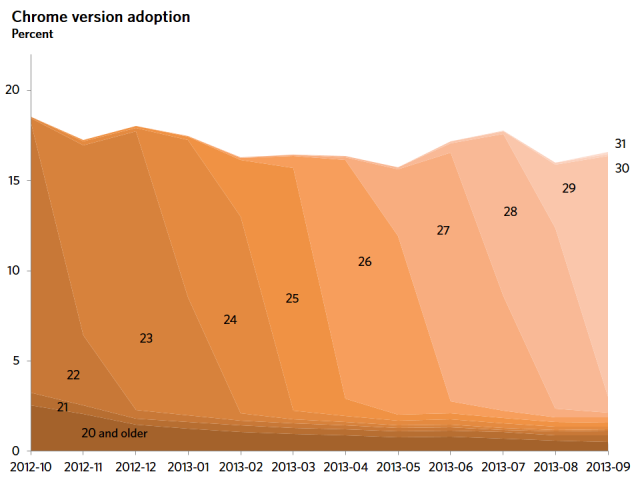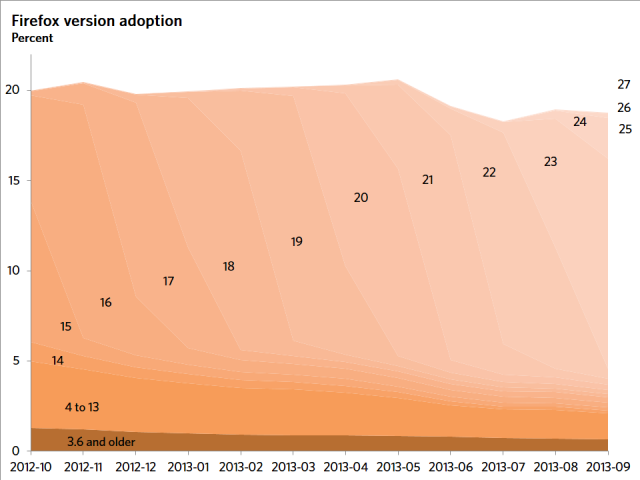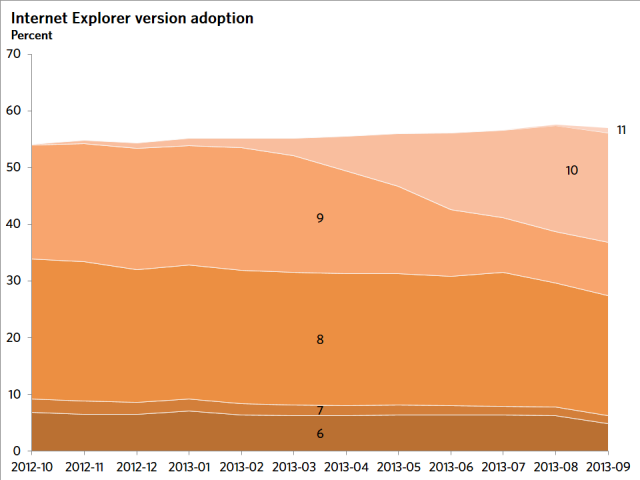Windows 8 growth also suffers a substantial slow down.
by Peter Bright
After surging in August, Windows 8's growth slowed down in September. Microsoft's newest operating system is still growing, however, and now it has more than twice as many users as Windows XP. One striking point is that Windows 8.1 already accounts for about ten percent of the Windows 8.x user base—no doubt a mix of people running the preview release and some number running the final release build.
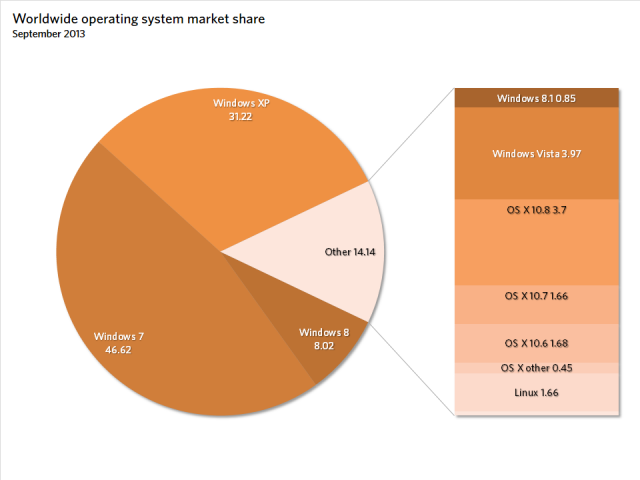

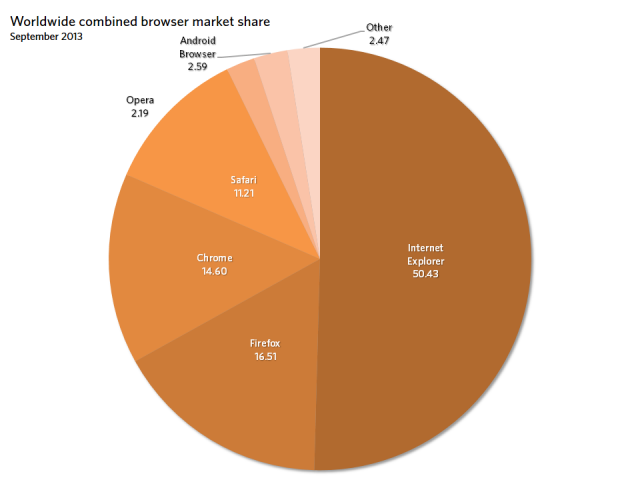
Over in browser land, Internet Explorer now claims a slim majority of the market. Although the browser has long had a majority share of the desktop browsing pie, the abundance of mobile browsing has kept it sub-50 percent over all. In September the share of mobile users as a proportion of the whole appeared to drop (from about 13 percent to about 11 percent) with the desktop proportion rising accordingly. This diminished level of mobile browsing is enough to push Microsoft's browser over the 50 percent threshold of combined mobile and desktop usage.
READ MORE: Critical Internet Explorer exploit code released in the wild
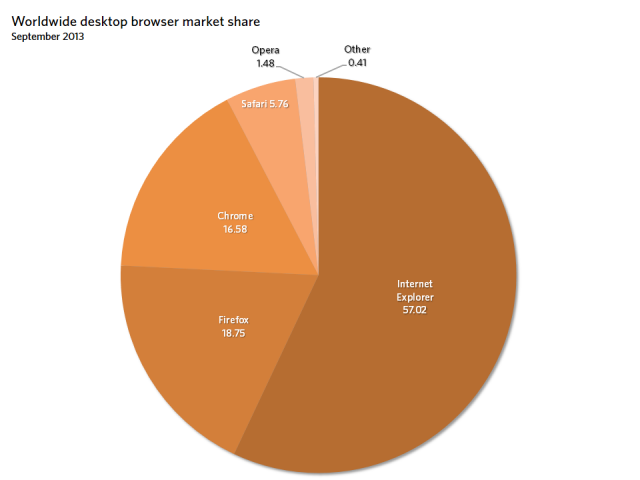
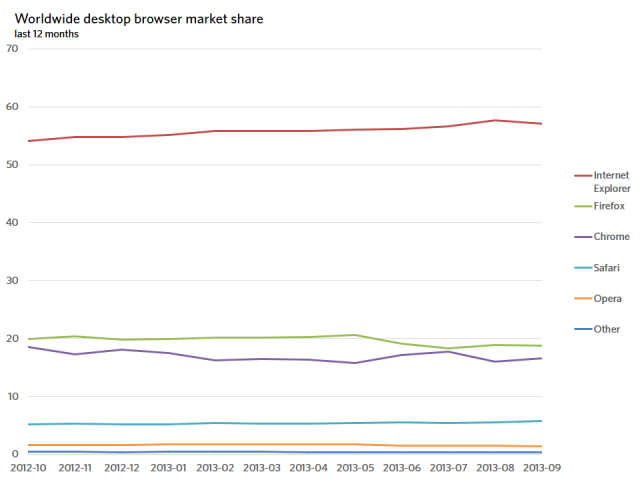
In spite of that, Internet Explorer's share of the desktop declined in September, dropping 0.58 points. Chrome rose by the exact same amount, 0.58 points. Firefox and Opera declined negligibly, losing 0.13 and 0.05 points, respectively. Safari largely picked up the balance, gaining 0.17 points.
READ MORE: Prenda’s John Steele: Accused of identity theft by his own mother-in-law
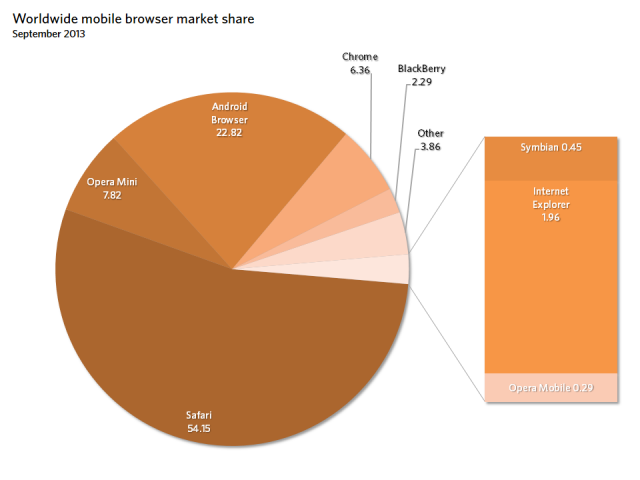
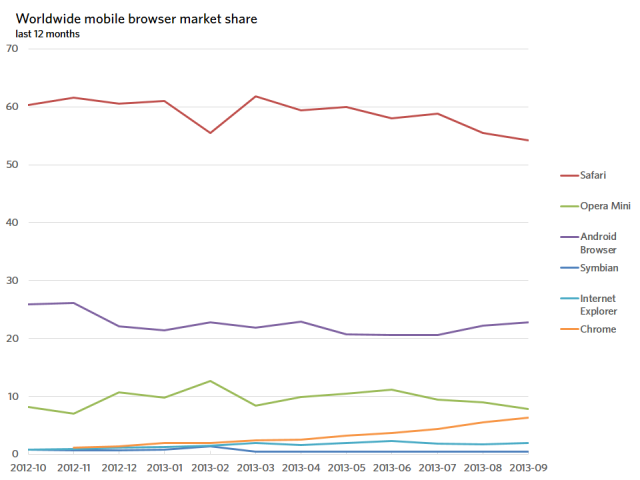
In the mobile space, some of the volatility and large month-to-month variation seems to be settling down somewhat. Safari showed its third month of decline, losing 1.31 points. Android Browser is up for the fourth month in a row, gaining 0.59 points, and Chrome is up for its eighth month in a row, gaining 0.76 points.
Microsoft saw another slowdown in September too: the transition from older versions of Internet Explorer to version 10 also slowed last month. Internet Explorer 10 was still up, adding 0.6 points, but this is a long way off the growth seen in June through August. The phenomenally obsolete Internet Explorer 6 dropped below 5 percent, down 1.4 points on August. With luck, this loss will be a permanent change and not merely a short-lived anomaly: using Internet Explorer 6 to browse the Web is nowadays a very miserable experience, with major sites incompatible with the ancient browser.
Courtesy: arstechnica

